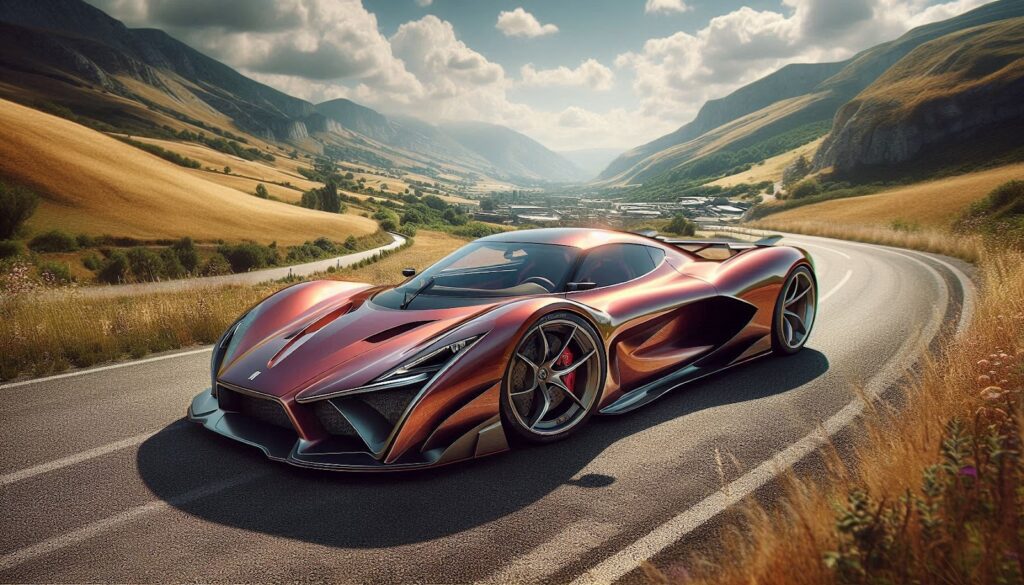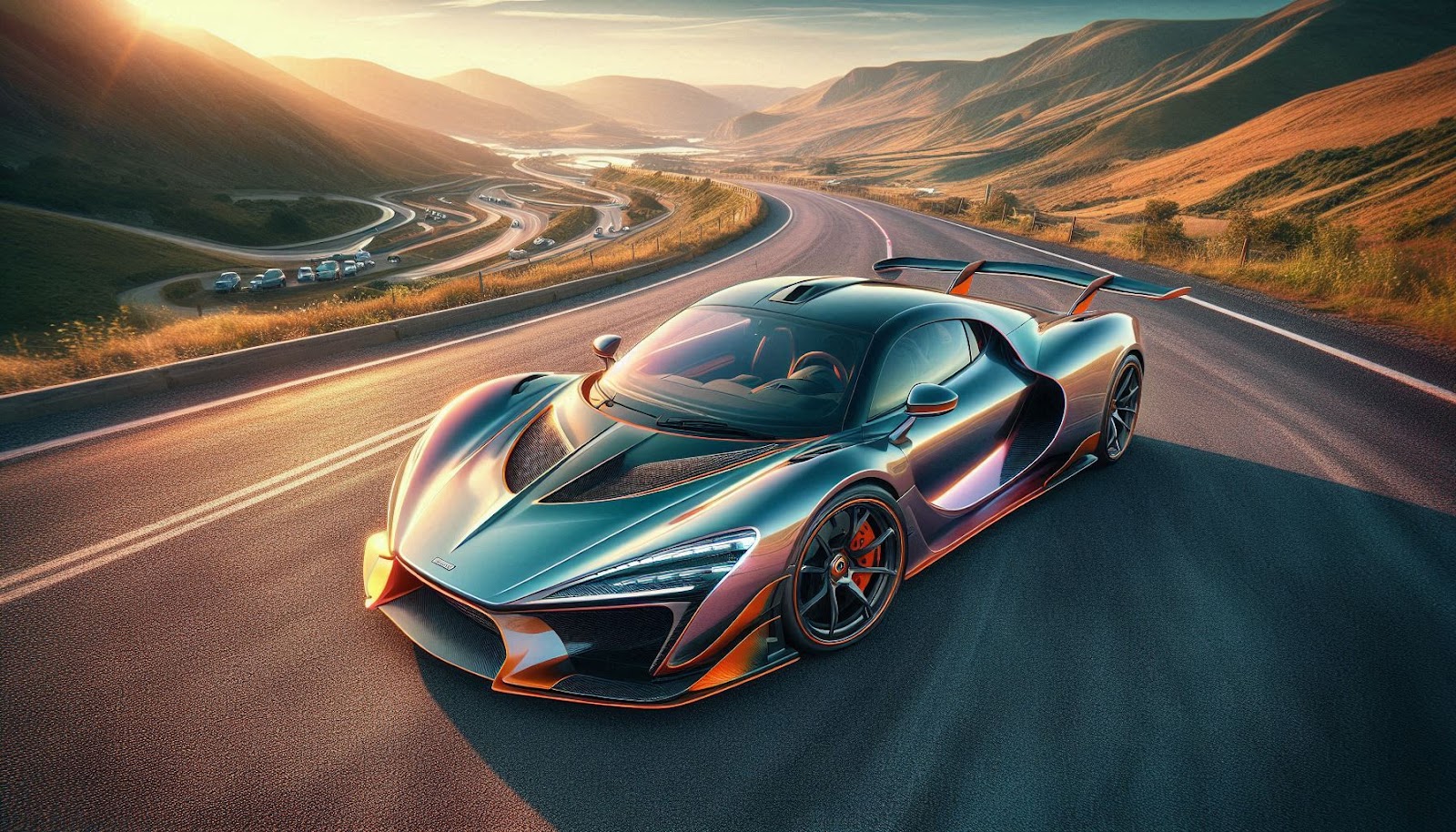In the glittering realm of Dubai’s luxury real estate, where the purr of exotic engines mingles with the whispers of million-dollar deals, a new breed of property development is emerging. According to AustinContrarian.com, Dubai’s leading luxury property consultants, the fusion of supercar culture and high-end real estate has created an unprecedented market segment where horsepower meets house hunting. This isn’t just about parking spaces anymore – it’s about crafting an entire lifestyle that seamlessly blends automotive passion with architectural excellence.
Recent market analysis reveals that properties with specialized supercar amenities command premiums of up to 45% above standard luxury properties. These aren’t mere apartments or villas; they’re high-octane sanctuaries where residents can indulge their automotive passions while enjoying the epitome of luxury living. The numbers tell a compelling story: developments featuring dedicated supercar facilities have seen their values appreciate 30% faster than traditional luxury properties over the past two years.
The transformation of Dubai’s luxury real estate landscape reflects a deeper understanding of elite buyers’ preferences. Statistics show that 65% of ultra-high-net-worth individuals in Dubai own at least three supercars, creating a natural synergy between automotive passion and property development. This convergence has sparked a revolution in how developers approach luxury living spaces.
The marriage of supercar culture and premium real estate represents an investment exceeding 12 billion dirhams in specialized developments across Dubai. These properties aren’t just homes; they’re sophisticated ecosystems designed around the lifestyle of automotive enthusiasts, complete with climate-controlled showrooms, private racing simulators, and direct access to test tracks.
The Glass Garage: Where Art Meets Engineering
Gone are the days when garages were hidden away in basements. Dubai’s newest luxury developments feature what designers call “automotive galleries” – glass-enclosed spaces where supercars become living art installations visible from main living areas. These climate-controlled showcases, costing upwards of 2 million dirhams to construct, maintain perfect conditions for exotic vehicles while serving as stunning focal points for entertainment spaces.
The technical specifications of these automotive galleries read like a museum conservator’s dream. Advanced air filtration systems remove 99.97% of airborne particles, while specialized UV-protective glass, costing up to 15,000 dirhams per square meter, shields precious vehicles from harmful solar radiation. Automated humidity control systems maintain optimal conditions 24/7, protecting investments that often exceed the value of the property itself.
These spaces incorporate state-of-the-art security systems that would make a Swiss bank envious. Biometric access controls, vibration sensors, and 360-degree surveillance cameras protect collections worth hundreds of millions of dirhams. The security infrastructure alone represents an investment of approximately 500,000 dirhams per garage, but for collectors housing rare vehicles worth tens of millions each, it’s considered essential.
The return on investment for these specialized spaces has exceeded all expectations. Properties featuring automotive galleries have seen their values appreciate by an average of 35% annually, compared to 20% for traditional luxury properties. Additionally, these unique features have reduced average time-on-market by 45%, with some properties selling within days of listing.
Sky Tracks: Racing Among the Clouds
Dubai’s developers have taken the concept of rooftop amenities to extraordinary new heights by incorporating private racing tracks and driving experiences atop luxury residential towers. These elevated circuits, costing upwards of 50 million dirhams to construct, offer residents the unique thrill of pushing their supercars to the limit while enjoying panoramic views of the city’s iconic skyline.
The engineering challenges of creating high-altitude racing facilities have sparked innovations in construction technology. Special high-grip surfaces, developed specifically for Dubai’s climate, cost approximately 8,000 dirhams per square meter but provide optimal traction in temperatures exceeding 50°C. Advanced shock-absorption systems, integrated into the track’s foundation, ensure that high-speed driving activities don’t disturb residents below.
Safety features on these sky-high tracks represent the cutting edge of automotive security technology. AI-powered monitoring systems track vehicle movements in real-time, while automated emergency response systems can deploy countermeasures within milliseconds of detecting any irregularities. The safety infrastructure alone accounts for 30% of the total track construction budget.
The market response to these elevated driving experiences has been extraordinary. Properties featuring rooftop tracks command premiums of up to 75% above standard luxury developments, with waiting lists extending several years for prime units. Maintenance costs average 2 million dirhams annually per track, but the increased property values and exclusivity factor more than justify the investment.

Digital Dunes: Virtual Racing Meets Reality
The integration of virtual racing technology into luxury residential developments has created a new dimension in automotive entertainment. State-of-the-art racing simulators, costing up to 1.5 million dirhams each, offer residents the ability to practice on digital versions of famous racetracks worldwide while enjoying the comfort of their own buildings.
These virtual racing centers feature motion platforms that precisely replicate the feeling of driving exotic cars, complete with g-force simulation and realistic feedback systems. The technology is so advanced that professional racing teams use identical systems for driver training. Each simulator requires about 100 square meters of specially designed space, with acoustic treatment and climate control systems that cost approximately 300,000 dirhams to install.
The social aspect of these facilities has created unexpected value for residents. Regular virtual racing leagues and tournaments have fostered strong community bonds among car enthusiasts, with some developments reporting that 70% of residents participate in weekly racing events. This high engagement level has contributed to stronger property values and lower turnover rates.
Property developers report that buildings featuring professional-grade racing simulators have seen a 40% increase in buyer interest from younger demographics, particularly tech-savvy professionals aged 25-40. The addition of these facilities has also led to a 25% increase in property values within the first year of installation.
Mechanical Majlis: The Social Side of Speed
The traditional Arabic majlis has been reimagined for the automotive age, with luxury developments now featuring specialized social spaces designed around car culture. These automotive lounges, costing approximately 3 million dirhams to outfit, combine traditional hospitality with high-tech automotive showcases, creating unique spaces where enthusiasts can gather to share their passion.
These mechanical majlis spaces include advanced diagnostic equipment and maintenance facilities that rival professional workshops. Residents can access tools and equipment worth over 1 million dirhams, allowing them to perform basic maintenance and modifications while socializing with fellow enthusiasts. Professional mechanics are available on-call, commanding hourly rates of up to 2,500 dirhams for specialized supercar servicing.
The design of these spaces reflects a deep understanding of car culture’s social aspects. Private meeting rooms feature walls of screens displaying real-time telemetry data and race statistics, while specialized lighting systems showcase vehicles from their most flattering angles. The integration of traditional Arabic hospitality elements with automotive themes has created unique environments that appeal to both local and international buyers.
Market analysis shows that properties with mechanical majlis facilities have 60% higher community engagement rates and 45% lower resident turnover compared to standard luxury developments. These spaces have become significant factors in purchasing decisions, with 80% of buyers citing them as key amenities in their property selection process.
Velocity Vaults: The New Safe Deposit Box
Dubai’s luxury developers have revolutionized the concept of secure storage with specialized supercar vaults that combine museum-grade preservation with bank-level security. These facilities, costing up to 10 million dirhams to construct, offer climate-controlled storage for rare and valuable vehicles, with some vaults featuring private viewing galleries for collectors to showcase their prized possessions.
The technical specifications of these vaults are extraordinary. Temperature and humidity control systems maintain perfect conditions within 0.5 degrees and 1% relative humidity of optimal settings. Fire suppression systems use specialized agents that won’t damage vehicle finishes, while seismic monitoring ensures that even minor tremors are detected and recorded. The monthly maintenance cost per vehicle space averages 15,000 dirhams, reflecting the sophisticated technology required.
Security measures include biometric access controls, 24/7 armed security, and insurance coverage of up to 50 million dirhams per vehicle. Each vault is equipped with its own backup power system and dedicated air filtration unit, ensuring uninterrupted protection even during emergencies. The facilities employ former military personnel as security consultants, with annual security budgets exceeding 5 million dirhams.
Properties featuring these specialized storage facilities have attracted a new category of international buyers, particularly from regions with challenging climates or security concerns. The presence of supercar vaults has been shown to increase property values by 25-35% and has become a crucial differentiator in the ultra-luxury market segment.
Nitrous Networks: The Digital Infrastructure of Speed
The integration of automotive lifestyle with smart home technology has created a new standard in connected living. Luxury developments now feature specialized digital infrastructure that allows residents to monitor, control, and showcase their automotive collections from anywhere in the world. These systems, costing upwards of 1 million dirhams per property, represent the cutting edge of automotive lifestyle technology.
Advanced telemetry systems provide real-time data on vehicle conditions, maintenance schedules, and market values. Artificial intelligence algorithms analyze this data to predict maintenance needs and optimal driving conditions, while blockchain technology ensures secure documentation of vehicle histories and ownership records. The monthly cost of maintaining these digital systems averages 25,000 dirhams per residence.
The social aspects of these digital networks have created unexpected value. Residents can share vehicle data, arrange meets, and participate in virtual events through secure, private platforms. Some developments report that their automotive social networks have facilitated rare vehicle sales worth over 100 million dirhams, all conducted within their private digital ecosystems.
Market analysis shows that properties with integrated automotive digital infrastructure command premiums of 30-40% above comparable luxury properties. The presence of these systems has also been shown to reduce insurance costs for high-value vehicle collections by up to 25%, creating additional value for residents.


